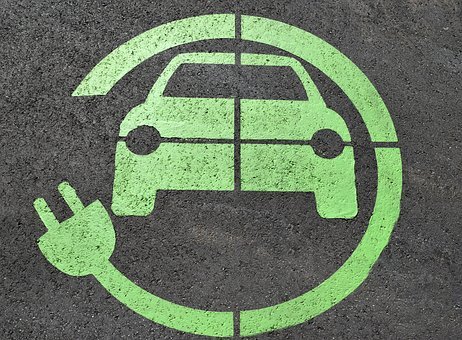Or should we say to lease or not to lease??
In the company, or keep it personal??
Have you guessed what I’m talking about yet? Well, probably as it’s in the title, which we have to do from an SEO point of view according to Sue Fernandes who looks after our website for us.
Yes, we’re talking EV – that’s electric vehicles for those of us not quite down with the acronyms.
For years we have been telling you not to buy a company car through your business, that you will get battered for personal tax on it as a benefit in kind, and then of course there’s the Class 1A National Insurance Contributions (NIC) that employers pay on company cars and fuel at 13.8%!
These factors have always made it really inefficient from a tax point of view to buy a company car (unless of course it’s actually classed as a commercial vehicle, but that’s a whole different conversation). Instead we have usually recommended that business owners buy their cars personally and claim the 45p per mile for business travel allowance to cover costs associated with running their car.
If you want to skip the text, here’s a quick video of my top reasons why there has never been a better time to buy an electric vehicle as a company car in your UK limited company.
So why are we changing our tune now?
Well, as we become more aware of the damage caused to the environment by our more traditional gas guzzlers, and the government is actually starting to incentivise manufacturers and business as a whole to reduce their carbon footprint, electric cars are becoming more prevalent.
This means that there are more options on the market than there were in the past, and that prices are coming down.
Personally, I still feel that we are very much early days in the electric revolution, so for me any move I make to electric, which I would very much like to do sooner rather than later, would probably be combined with dipping my toe into the world of car leasing rather than buying outright for the first time ever. But that’s another story too!
Is it just about the environment?
No, there is not only the environmental impact to consider as a positive reason to make the move to electric. There may for the first time ever be significant financial advantages.
Electric Vehicles – Running costs:
It is thought that running a fully electric car costs around 4p per mile. Well, that’s what the advisory fuel rates for electric vehicles have been since September 2018. And I suspect that if it was 4p per mile then, then if anything this cost per mile will have come down as electric car charging points have become so much more efficient.
Electric Vehicles – Business Mileage:
So, while it may only cost 4p per mile to run, here’s the even better news – you can still claim 45p per mile for your business travel!! Big caveat here – I suppose this makes sense, as the 45p is meant to cover more than just fuel, and could it be that with electric vehicle technology still being in its infancy, there is more likely to go wrong with electric cars?? I’ll leave that question for someone more qualified than I to answer.
Oh, and don’t forget the extra 5p per mile if someone travels with you (not that that’s necessarily recommended at present, unless of course they wear a mask, you travel with the roof down and they don’t touch ANYTHING)
Electric Vehicles – Benefit in Kind:
Well last year (up until 5 April 2020) the benefit in kind (BIK) tax rate for employees with electric vehicles as their company care was 16%.
From 6 April 2020 for one year only it fell to a whopping great 0%. It is set to increase again from 6 April 2021, but only to 1% in the first year and to 2% in the tax year beginning 6 April 2022 right up until 2025. Unless of course Rishi changes his mind in an effort to get some money back in the Government’s coffers
And it’s not just purely electric vehicles that this fantastic rate applies to – so long as your car was registered after 6 April 2020, and has CO2 emissions of up to 50g/kilometre as well as an electric only range of at least 130 miles it will apply…
(Question… why do they have the CO2 emissions in km and the minimum mileage in miles… is the former an EU legislation, and the latter a UK one???)
… apologies I digress!
So, for those of you like me for whom CO2 emissions mean nothing, here’s a great link I found to Martin Brown’s ‘Best company cars to beat BIK in 2020/2021’ which has both pure electric and hybrid vehicles to suit most budgets.
And there’s more…
Grants for Charging Infrastructure
The government offers grants for the installation of charging points, both at your home and place of work.
You can only do this by using an authorised installer and the grants are offers via the Office of Low Emission Vehicles (OLEV).
The two applicable schemes are called the Workplace Charging Scheme and the Electric Vehicle Homecharge Scheme, and you can read more about each, as well as accessing details of approved charge point models, eligible vehicles and authorised installers.
More from HMRC on this can be found here:
https://www.gov.uk/government/collections/government-grants-for-low-emission-vehicles
If you’re thinking about buying an electric or hybrid car through your business, please feel free to give us a call and one of the IN Team will be happy to help.
And if you are interested in leasing a car through your business, please let us know and we will be happy to introduce you to the team at Carsave Leasing who specialise in deals on Electric vehicles, amongst other things.







